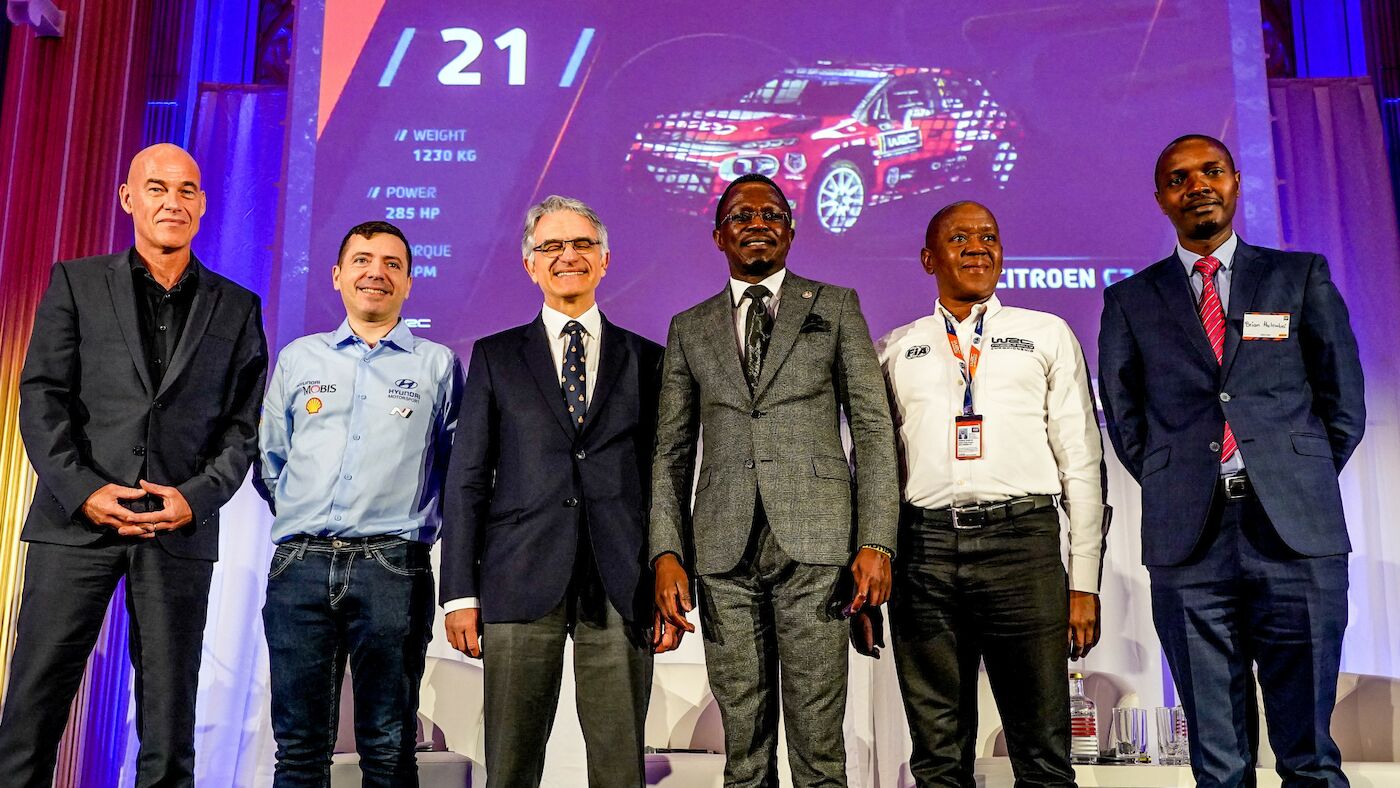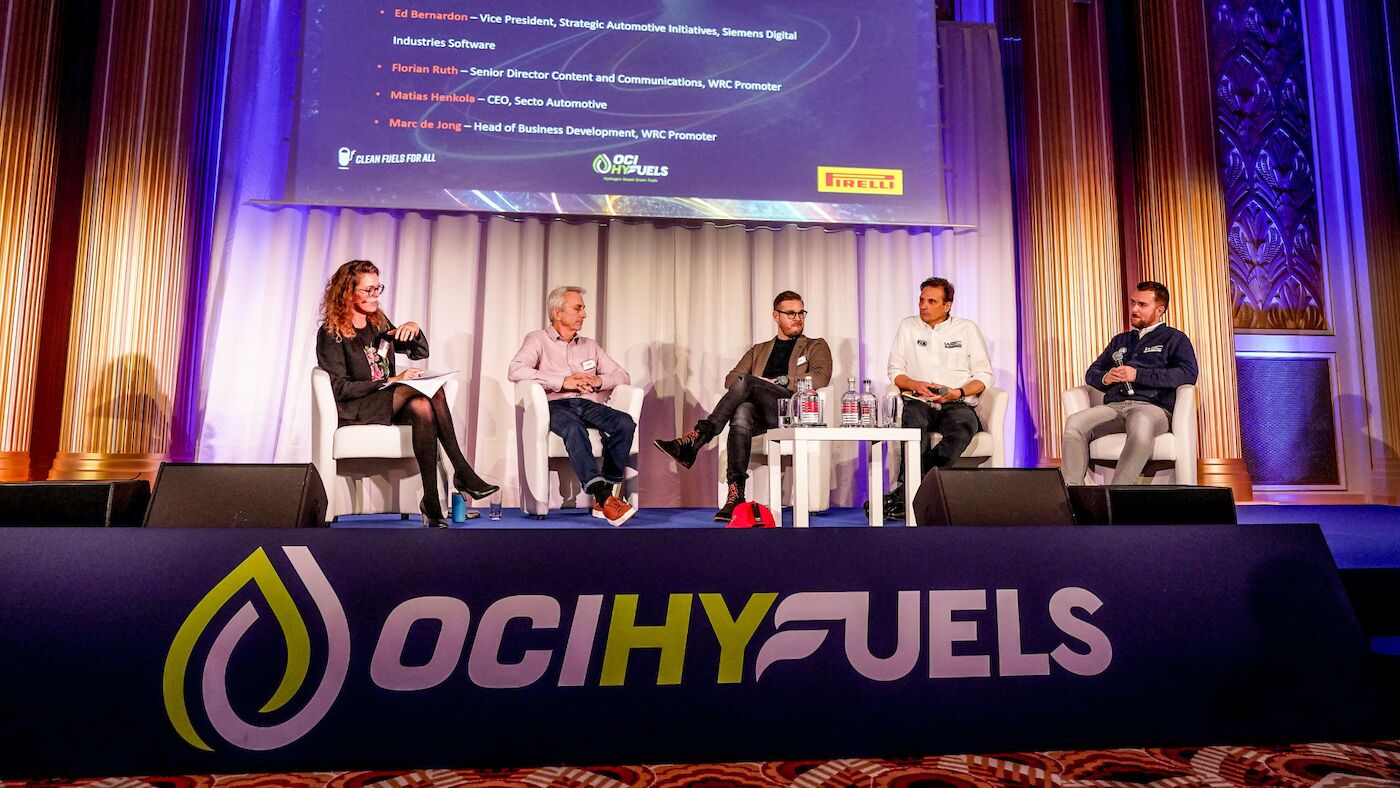WRC Innovation Forum: Multiple Solutions essential in future of mobility
Throughout Friday’s panels, there was a clear overlaying theme: improving sustainable mobility will require a multi-faceted approach – with a transfer of technology from the motorsport sector essential in achieving this.
The Honorable Mr. Ababu Namwamba – Cabinet Secretary for Youth Affairs, Sports and the Arts, Republic of Kenya – spoke of a need for a cocktail of solutions – not just in the motoring sector but also in the wider spectrum. He referenced Kenya’s extensive tree-planting project which also featured at Safari Rally Kenya in 2022, adding that the nation’s energy production is over 80 per cent renewable.
Speaking as part of the first panel, Patrice Ratti – Former President of Renault Sports Cars and Member of the Automobile Club Monaco’s Board of Directors – was full of praise of the forum.

“This is a great idea to have this type of event where people from the industry, people from motorsports and journalists can talk about the big issues from tomorrow and talk about what motorsport can be used for – to develop the cars of the future,” he said.
He also stressed the importance of hedging future development across multiple technologies, referencing renewable fuels, as used in WRC today, as well as hydrogen and electricity.
“Motorsport has always played a big role in developing future technologies, today even more than before. It is very important – as is, I think, the strategy from the FIA to have different technologies in different championships.

“In WRC you have hybrid and renewable fuels. I think that is very good because we are going to see in real conditions how these fuels and technologies will perform. I think that, overall, it is a great strategy.
“Nobody can say what will be the technology of the future and my bet is we will need several technologies,” added Ratti.
Echoing the words of Ratti was Toyota Gazoo Racing team principal Jari-Matti Latvala, who said: “The Toyota philosophy is to transfer what we learn in motorsport. Here [in rallying] we push the cars to the extreme. If they survive here, they should survive everyday usage.”
Since the beginning of 2022, all cars in the FIA World Rally Championship have been running exclusively on renewable fuel provided by P1 Racing Fuels. CEO Martin Popilka revealed at the forum that a fleet of German governmental vehicles will now use the very same fuel researched and developed in the WRC for everyday driving in Berlin, with his company targeting wider availability throughout the German market.

Sitting alongside Popilka on the day’s third panel was Toyota Gazoo Racing’s powertrain project manager Norio Aoki. He insisted that Toyota will remain committed to the combustion engine alongside other technologies, stressing that the switch to P1’s sustainable fuel in the WRC in 2022 required no hardware changes.
Karlijn Arts, Head of Sustainability and Regulatory Affairs at OCI Fuels NV, explained how sustainable methanol is used as one of the components that makes up the 100% fossil-free fuel used in WRC today, and elaborated how this technology can also cross-over into solutions for aviation, maritime and static power generation.
Eleonora Giada Pessina, Pirelli Group Sustainability Officer, highlighted the work done at Pirelli to improve the sustainability of their products without compromise to crucial safety or performance. She also highlighted a need to think across supply chains, logistics and design phase to increase the overall sustainability of the entire process.
Cross-industry cooperation was also echoed by Prof. Ing. David Chiaramonti, PhD, Professor of Energy Economics and Bioeconomy at Politecnico di Torino.

Other topics discussed throughout the day of engaging panels was the WRC Promoter’s reliance on new technologies to increase off-site production and decrease on-site requirements, plus how Siemens is using rallying to demonstrate and test advanced sensor fusion and image classification with the long-term aim of benefiting pedestrian safety in urban environments.
In summary of the next steps for motorsport in sharing the future of mobility, Director General John Cooper of Fuels Europe expressed the importance of bringing attention to policymakers of the work being done in the industry to positively impact the future.
“Politicians want to see what is possible. Motorsport gives us that ability to actually see that in real life,” Cooper said.
“In this case we are talking about new technologies like renewable fuels in hybrid vehicles – vehicles that are very efficient but still with a combustible engine being climate-neutral. Motorsport is demonstrating that and sharing it worldwide. That is exactly what we need.”
Following the success of Friday’s panel, the WRC Promoter is planning future forums in the upcoming season.

